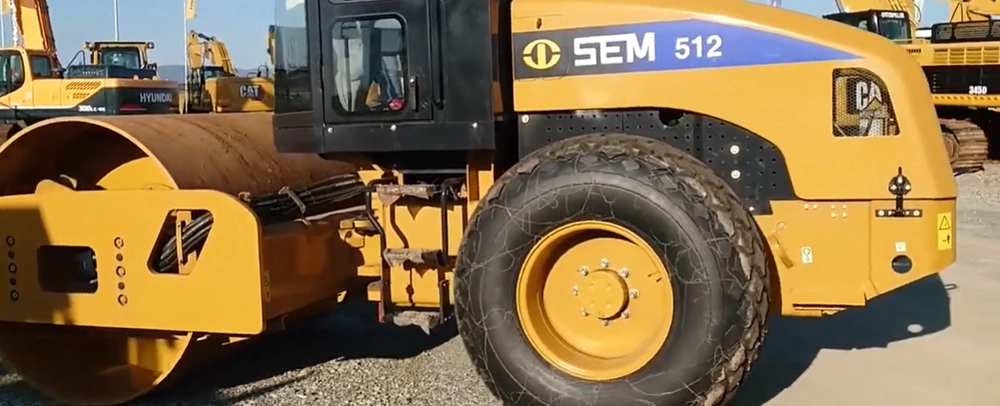A road roller is an essential piece of construction equipment. It features a heavy, cylindrical drum that provides the necessary compaction force. The drum is typically made of high-strength steel to endure continuous use. Road rollers come in various sizes and configurations, with single or double drums, to meet different project requirements. They are powered by robust diesel engines, generating sufficient torque to drive the drum and move the machine forward. The controls are user-friendly, allowing operators to easily adjust the compaction pressure and speed. Equipped with a comfortable cab, it offers good visibility to ensure precise operation.
| Pictures | 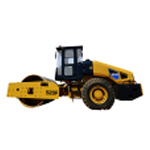 | 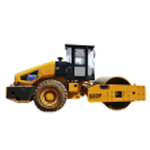 | 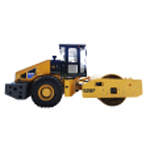 |
| General parameters | |||
| Product Type | Single drum roller | Single drum hydraulic | Single drum hydraulic |
| Drive Type | Hydraulic | Hydraulic | Hydraulic |
| Tonnage range | 20-25 tons | 20-25 tons | Over 25 tons |
| Power Type | Fuel | Fuel | Fuel |
| Engine | |||
| Model | SC4H | SC4H | SC4H |
| Rated power (kW) | 129 | 129 | 147 |
| Rated speed (r/min) | 2000 | 2000 | 2000 |
| Emission standard | Euro 4 | Euro 4 | Euro 4 |
| Weight parameters | |||
| Working mass (kg) | 20000 | 22000 | 26000 |
| Distributed mass of vibrating wheel (kg) | 10000 | 11000 | 13000 |
| Compaction mechanism | |||
| Vibration frequency (Hz) | 28.5/32 | 28.5/32 | 28.5/32 |
| Rated amplitude (mm) | 2.05/1.15 | 2.05/1.15 | 2.05/1.15 |
| Excitation force (kN) | 380/280 | 400/290 | 430/300 |
| Vibrating wheel diameter (mm) | 1,600 | 1,600 | 1,600 |
| Vibrating wheel width (mm) | 2,130 | 2,130 | 2170 |
| Operating parameters | |||
| Theoretical climbing capacity (vibration/no vibration) (%) | 30 | 30 | 30 |
| Minimum Turning Radius (mm) | 6,350 | 6,350 | 6,800 |
| Steering angle (°) | ±33 | ||
| Dimension | |||
| Length x Width x Height (mm) | 6,370x2,310x3,200 | 6,370x2,310x3,200 | 6,670x2,470x3,250 |
| Wheelbase (mm) | 3100 | 3100 | 3300 |
| Minimum Ground Clearance (mm) | 459 | 459 | 459 |
| Fuel consumption | |||
| Fuel Tank Capacity (L) | 284 | 284 | 284 |
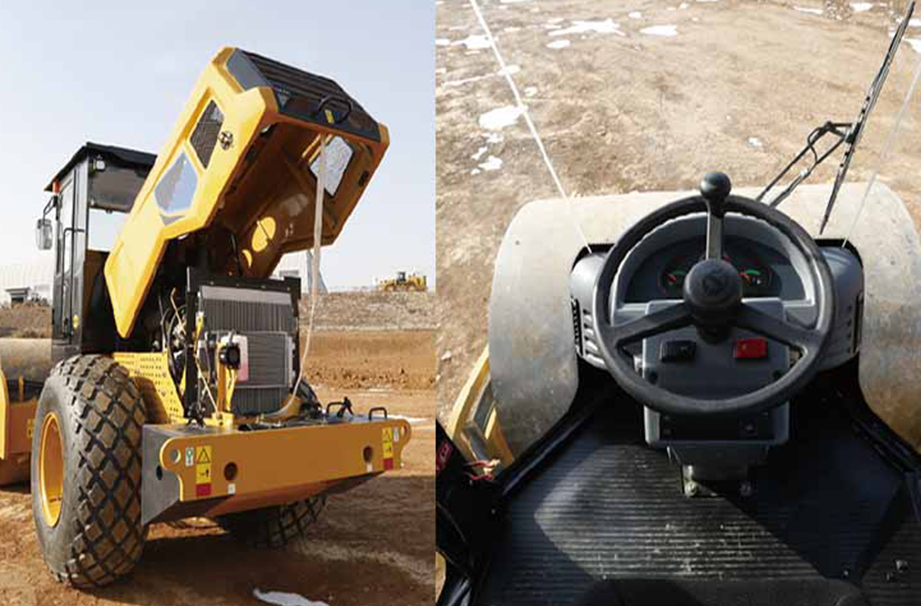
1. Frame: Serving as the main supporting structure of the road roller, the frame is responsible for connecting and securing all other components. It must also bear various forces generated during operation, including the machine's own weight, compaction resistance, and vibration impacts, ensuring overall stability and reliability.
2. Drum: This is the crucial compaction part of the road roller. Usually made of high-strength steel, its surface is specially treated to enhance wear and corrosion resistance.
3. Tires: In the case of pneumatic rollers, tires play a key role in compaction. These tires are typically made of special rubber materials with a certain degree of elasticity and hardness.
4. Engine: Providing the power source for the road roller, diesel engines are commonly used due to their high power and torque outputs, meeting the operational demands of the roller under different working conditions.
5. Transmission System: Responsible for transmitting the engine's power to the drum or tires, enabling them to rotate and move the machine forward. It can be a mechanical, hydraulic, or hydrostatic transmission system.
6. Cab: Designed to provide a comfortable working environment for the operator. It is usually equipped with an ergonomic seat, climate control systems to maintain a proper temperature, and soundproofing to reduce noise from the engine and operation.
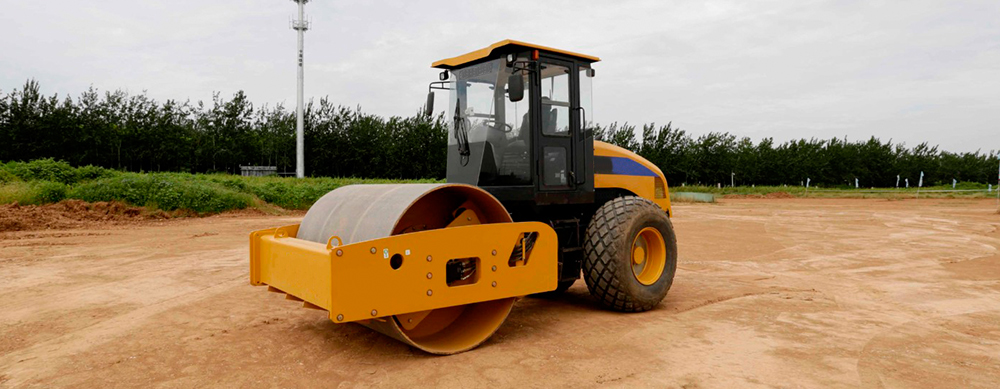
1. Soil Compaction: For compacting soil in the early stages of road construction or for building foundations, a padfoot (sheep's-foot) roller or a heavy-duty smooth-drum roller is often a good choice.
2. Asphalt Compaction: Double-drum vibrating rollers are ideal for asphalt compaction. The front and rear drums work in tandem to achieve a smooth and even surface.
3. Drum Width and Diameter: The width and diameter of the roller's drum determine the area it can cover in a single pass. A wider drum can cover more ground, increasing productivity.
4. Engine Power: The engine power should match the size and weight of the roller and the type of compaction work. A more powerful engine is required for heavy-duty compaction tasks and for operating the roller at higher speeds.
5. Turning Radius: A small turning radius allows the road roller to be more maneuverable, especially in confined construction sites such as city streets or intersections.
6. Transportability: Consider how easy it is to transport the road roller from one job site to another. Some rollers can be easily loaded onto a trailer and transported, while others may require special permits or equipment due to their size and weight.
7. Vibration Frequency and Amplitude: In vibrating rollers, the vibration frequency and amplitude can be adjusted to suit different materials and compaction requirements.
8. Oscillation Function: Oscillating rollers are beneficial for asphalt compaction as they cause less damage to the surface structure.

Road rollers are equipped with a heavy-duty drum, which is the core component for compaction. Single-drum rollers are often used for initial soil compaction, applying significant static weight to densify the ground.
Powered by robust diesel engines, road rollers generate ample torque to drive the drum and move forward. The engine's power output is carefully matched to the roller's size and the compaction requirements.
Different drum designs serve various purposes. The smooth drum is suitable for general compaction tasks, providing a uniform surface finish. Padfoot drums, with their protruding "feet," are excellent for compacting cohesive soils.
The operator's cab is designed with comfort and functionality in mind. It offers good visibility, with large windows allowing the operator to clearly see the work area, the edges of the drum, and any obstacles. The interior is equipped with an ergonomic seat to reduce operator fatigue during long shifts.
Road rollers come with essential safety features. Roll-over protection structures (ROPS) and falling-object protection structures (FOPS) safeguard the operator in case of accidents. The frame and components are built from high-strength materials, ensuring durability in the face of continuous heavy use.
